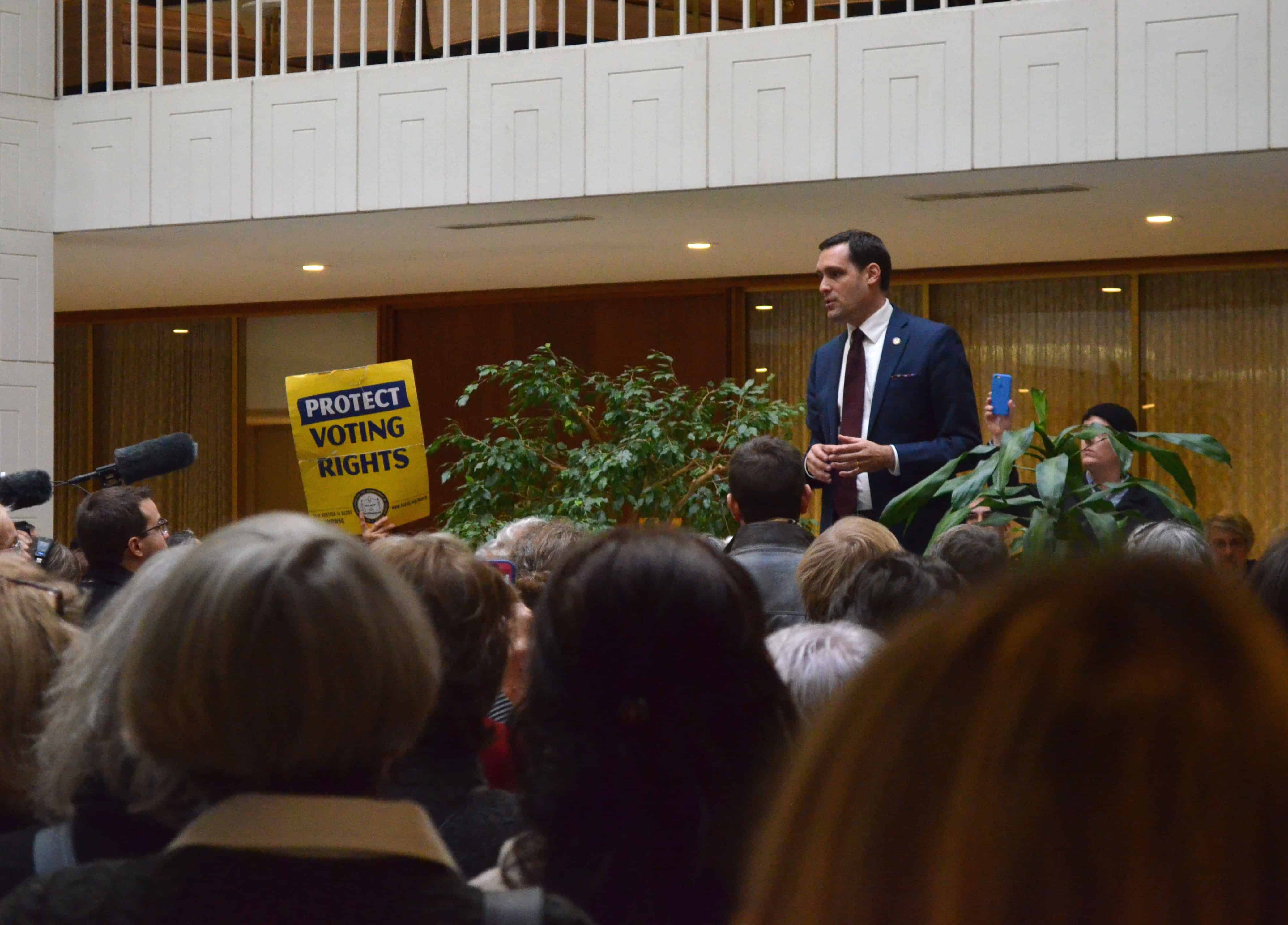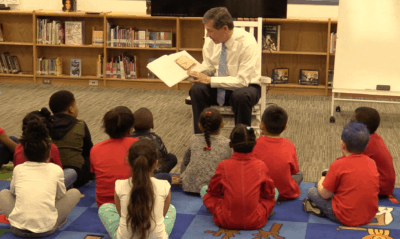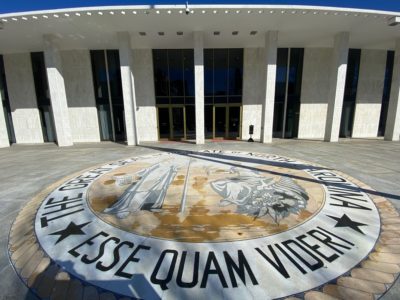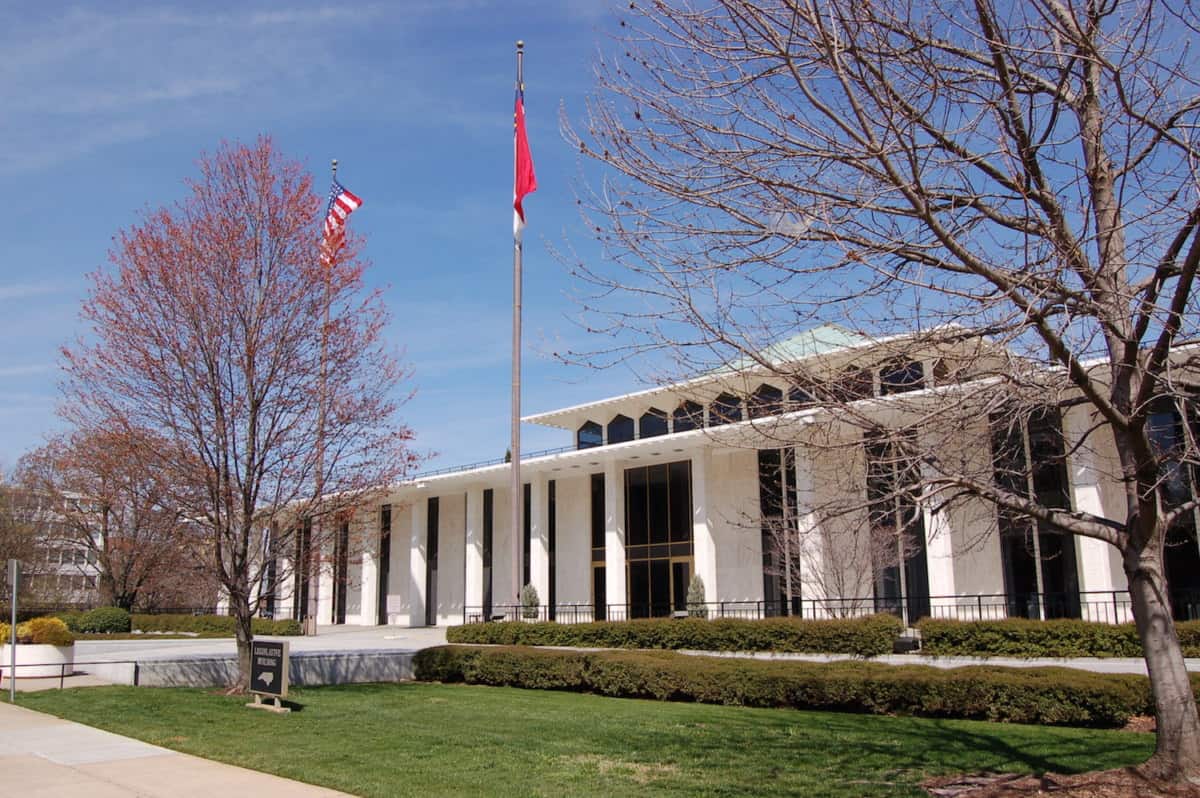A bill transferring many State Board of Education powers to the Superintendent of Public Instruction passed the House today.
The bill — House Bill 17 — was filed in the House during yesterday’s surprise special session of the General Assembly and comes after the victory of Republican Mark Johnson over Democratic incumbent June Atkinson in the race for Superintendent last month. It passed early this evening with a final vote of 70-36.
“We have a new Superintendent coming in,” said Rep. Craig Horn, R-Union, one of the bill’s sponsors. “The voters are very clear they want change, or they wouldn’t have voted the way they did. So let’s give the guy the power to make changes, bring his team in, and keep a close eye on him.”
The Superintendent’s new responsibilities include serving as the head of the Department of Public Instruction (DPI), a duty formerly entrusted to the State Board of Education. He has the power to administer DPI’s funds and enter into contracts for DPI operations.
Administrative and supervisory staff appointed to DPI will be under his control, and he will have the power to fire them in accordance with state law. These were duties previously given to the State Board, but the State Board had the ability to fire staff “for cause,” rather than simply in accordance with state law.
The Superintendent will now be able to direct and control “all matters relating to the direct supervision and administration of the public school system.” Previously, he would only have the powers delegated to him by the State Board.
He can “create and administer special funds within the Department of Public Instruction to manage funds received as grants from nongovernmental sources.” Previously, the State Board administered these funds.
The Superintendent will now also have the power to appoint the State Board’s two student advisors and local superintendent advisor. Those powers previously resided with the governor.
And he will have the power to appoint the head of the new Achievement School District, who will report directly to him. Previously, those were powers held by the State Board. The Achievement School District is a pilot program that would take five of the state’s lowest-performing schools and put them into a state-run district. For-profit charter operators could potentially operate these schools.
You can see the full list of changes made to the Superintendent’s duties in the bill. The section related to the Superintendent starts at the top.
Rep. David Lewis, R-Harnett, chairs the Rules, Calendar, and Operations of the House Committee, which met earlier today to discuss the bill. He is also one of the bill sponsors. He said that it doesn’t make sense for a person elected to lead education in North Carolina not to have the full power to do so. He said that critics of the increased power for the Superintendent should look to see how the Superintendent’s office was structured prior to 1995 when he says it was changed, creating conflicts between the State Board and the Office of the Superintendent.
“This seems to undo that,” he said during the committee meeting.
Terry Stoops, the Director of Education Studies at the John Locke Foundation, has a post on the bill that includes a history of state Superintendent powers.
When asked if Superintendent-Elect Johnson had asked for the increased powers granted in the bill, Horn said, “He directly indicated that he needed the power to implement change. We felt, in looking at what had been done in the past, what is done now, that we were willing to do that. We went the extra mile.”
Johnson was unable to be reached for comment.
HB 17 has been a point of controversy for protesters crowding the General Assembly. It not only gives the Superintendent more power, but also weakens the power of incoming Governor-Elect Roy Cooper.

Shortly after debate began on the bill, protestors erupted in the viewing gallery above the House floor. Eventually, everyone was removed from the gallery. Joe Killian, an NC Policy Watch reporter, was arrested when he refused to leave the gallery.
The House rested for about 40 minutes while protestors were cleared from the building. Some of the protestors were arrested.
The majority of the vocal opposition in the House debate on HB 17 concerned the aspects that weaken the power of the incoming governor, the speed of the process, and the lack of public transparency — especially given the complexity of the bill.
Rep. Henry Michaux, D-Durham, argued that the legislation should be held off until the upcoming long session in January.
“Things are being done now because you can do it, not because you should do it,” he said.
Rep. Chris Sgro, D-Guilford, said he had heard from 1,467 people in opposition to the bill. He reminded the House about the ramifications that came out of last year’s so-called “bathroom bill” — HB 2.
“Nobody’s had time to consider unintended consequences,” he said of HB 17.
Rep. Nelson Dollar, R-Wake, argued that now is the perfect time to increase the Superintendent’s powers.
“This General Assembly and past General Assemblies have demanded results from the Superintendent of Public Instruction,” he said. “I think this bill strengthens that position considerably.”
He also argued that with increased power, the Superintendent would be held even more accountable for the success or failure of the state’s education system.
Lewis also downplayed Democrat’s concerns over the new Superintendent powers.
“Nothing changes on the State Board of Education,” he said. “Nothing changes on the governor’s appointments to the State Board of Education.”
This afternoon, State Board of Education Chair Bill Cobey put out the following statement:
“The State Board of Education and State Superintendent have a strong and productive relationship that works well on behalf of public schools and charter schools in North Carolina. HB 17 An Act to Clarify the State Superintendent’s Role… raises Constitutional concerns and eliminates checks and balances that are important to the students of North Carolina.
“For these reasons, State Board of Education Vice-Chair A.L. “Buddy” Collins and I oppose HB 17. The bill is not in the best interest of public schools and public charter schools in North Carolina.”
During the committee meeting earlier in the day, lawmakers gave some members of the public the opportunity to speak. Brian Fitzsimmons, chair of the Wake County Democratic Party, used the opportunity to criticize the opacity of the surprise special session.
“What is being done now is wrong,” he said. “This is not the way good and reasonable and honest people govern.”
Also during the committee meeting, Rep. Darren Jackson, D-Wake, reiterated his and other Democrats’ protest of the special session generally and any proceedings happening during it. When the House convened after the surprise special session was called Wednesday, Jackson announced on the House floor that he was lodging a constitutional protest against the special session. Other Democratic representatives then stood up one by one and announced they were joining him in the protest.
Democrats continued to lodge their protests at this evening’s House session.
HB 17 now moves to the Senate.
Recommended reading




